In one of John Cleese’s comedic highlights in his television show “Fawlty Towers,” Basil Fawlty antagonizes some German guests at his hotel by constantly invoking the Second World War, all the while telling his staff “Don’t mention the war!”
The Trump administration should take some of Basil’s advice when it comes to Libya and North Korea, and not simply because its constant invocation helped to create an atmosphere of distrust and fear in Pyongyang. The fact that the Trump team isn’t terribly clear as to what model they mean—i.e., the denuclearization part or the dying at the hands of a mob part—is only a feature of the larger bug. The process of Libyan denuclearization bears little resemblance to the vast and complicated process that would be required to engineer a similar result in North Korea, even taking aside the very remote possibility of North Korean acquiescence to such a goal.
Apples and oranges
For starters, while North Korea has been working away at producing nuclear weapons for years, the Libyans had essentially received their nuclear equipment from the Pakistani A. Q. Khan network and put it in the attic. Though the International Atomic Energy Agency (IAEA) reports from 2004 outline some experiments and activities conducted by Libya throughout the 1980s and 1990s, they pale in comparison to the challenge we would face in disassembling, packaging, and removing North Korea’s nuclear infrastructure. At the time, U.S. officials noted that “the Libyans had assembled just over 70 centrifuges for testing and had not enriched any uranium with them.” When I was part of the Libyan nuclear dismantlement team at the Department of Energy (DOE) in 2003-04, several National Laboratory experts underscored that the Libyan removal operation was quick and relatively painless because the equipment was uncontaminated and in mostly in crates already! Had the Libyans used much of their equipment, it might have taken months to decontaminate and dismantle their program.
This is obviously not what we would face in North Korea, where the North Koreans have been working away at producing nuclear materials—through both plutonium reprocessing and uranium centrifuges—for years. The scope, scale, and physical status of the North Korean program very much outstrips what the Libyans ever achieved.
An even more important distinction lies in the nature of the two nuclear programs. The Libyan program was small and nonproductive. In Libya, very few scientists and technicians were involved. In 2007, the Government Accountability Office reported that the Department of Energy estimated that “200 scientists in Libya have WMD knowledge and pose a proliferation risk.” This is across all forms of WMD, not just nuclear. By contrast, the North Korean nuclear weapons program is large, secretive, and manifestly effective. Senators Sam Nunn and Dick Lugar (who created the 1990s era Cooperative Threat Reduction programs to deal with the post-Cold War Soviet proliferation threat) have estimated that thousands of North Koreans are involved in WMD programs.
Beyond whether this is a challenge that would need to be addressed to prevent these scientists leaving North Korea and working for other countries, this is a challenge in the North Korean context itself. Unlike with the Soviet Union, where we were naturally prepared to accept Russian continued possession of nuclear weapons, the Trump administration’s stated ambition with North Korea is to dismantle North Korea’s nuclear and missile programs irreversibly. Unless we are prepared—and North Korea is willing—to sequester all of those thousand scientists, there are going to be some who will remain outside of our knowledge and our control, who could help reconstitute North Korea’s nuclear weapons program at a later date.
It is extremely doubtful that we will get North Korea’s cooperation in this endeavor or that we could or should trust the results of that process. Would we really believe that the North Koreans gave us a complete roster of everyone who knows how to build nuclear weapons or missiles? Consequently, even in our wildest imaginations, we won’t be able to prevent the North Koreans from retaining the human capital necessary to reconstitute a nuclear weapons program later on.
The dangers of a poor analogy
This only underscores the profound nature of the verification challenge awaiting us in North Korea and its differences with Libya. The Libyan verification exercise took several months and, by September 2004, the Bush administration was satisfied enough that it eliminated its WMD-related sanctions against Libya. The IAEA took a bit longer, waiting until September 2008 to issue a report that essentially closed the matter.
Verifying North Korea’s physical capabilities, particularly in light of its past compliance failures, will be immensely difficult, especially if North Korea is held to even a fraction of the same standards that Iran nuclear agreement skeptics used to scuttle U.S. participation in the Joint Comprehensive Plan of Action (JCPOA) in May. Will we be able to prove, conclusively, that North Korea does not retain its own “atomic archive” of nuclear weapons documents or a cache of materials for reconstitution of a nuclear weapons program in the future? Probably not, even under the most intrusive of inspection regimes.
This is not to say that an agreement will be impossible to fashion with North Korea. An agreement could be negotiated that would provide for inspections of suspect sites in a timely manner. An agreement could be negotiated that would require constant monitoring of declared North Korean nuclear facilities and those involved in the nuclear program. And, an agreement could be negotiated that would enhance the ability of the international community to understand what is going on in the North Korean nuclear program that will almost undoubtedly remain after any negotiation is completed.
Moreover, such an agreement would be a tremendous improvement over the current situation. But, there will always need to be a healthy suspicion as to whether North Korea retained something for handling a future contingency and an agreement would have to reflect a realistic sense of what is possible with the North Koreans. The outcome will not be remotely like what happened with Libya, even in its most optimistic portrayals.
Misrepresenting an agreement with North Korea would undermine the importance of careful monitoring and give the illusion of infallibility for the agreement that is undeserved.
Further, it would be dangerous to argue otherwise. One of the most persistent criticisms of the JCPOA was that some of the restrictions would lapse and that there would be some risk of Iran one day deciding to build nuclear weapons, notwithstanding the JCPOA. President Obama himself acknowledged this risk in a candid, blunt, and honest statement. But, this was simply an honest reflection of both the technical and political realities in Iran and the limitations of an agreement. If the Trump administration persists in seeking a Libya-style denuclearization in North Korea in effect as well as in action, then it will either fail or have to lie in order to assert that the resulting agreement overcomes the huge challenges of verification and reversibility. Evading the truth and misrepresenting an agreement with North Korea would undermine the importance of careful monitoring and give the illusion of infallibility for the agreement that is undeserved.
Moreover, it is worth noting that even the Libyan experience was not without its complications. For years afterwards, the Libyans would complain about sanctions relief and occasionally demand their nuclear equipment returned. But, herein lay the problem for Libya: It didn’t know enough about the underlying science or have the manufacturing base to make good on its threats independently. The North Koreans could do much more than complain.
Not only is the Libya comparison for North Korea dangerous in that it imperils negotiations to address the most serious crisis we face today (until Iran’s nuclear program is restarted following our withdrawal from the JCPOA), but it also gives a warped impression of what actually can be achieved. North Korean denuclearization, even in the most extreme rendering of some U.S. officials and nongovernmental organizations, will struggle to be complete, verifiable, and irreversible. The North Koreans have come too far and too far on their own to make this a realistic proposition. A reality check is sorely needed.
The Brookings Institution is committed to quality, independence, and impact.
We are supported by a diverse array of funders. In line with our values and policies, each Brookings publication represents the sole views of its author(s).

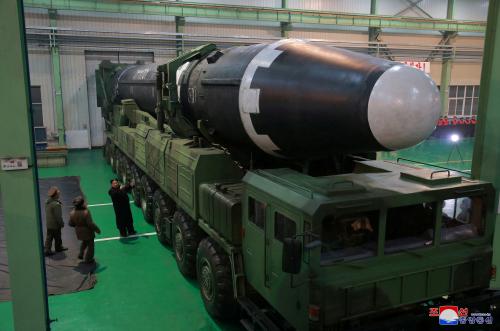
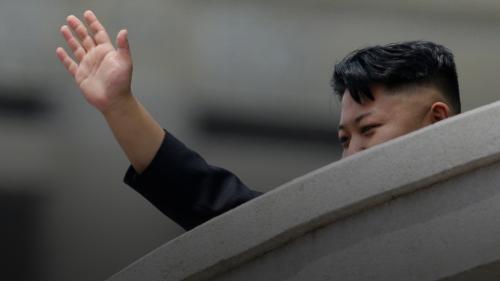
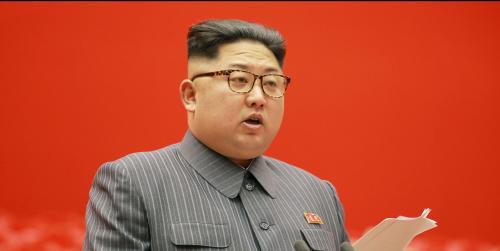

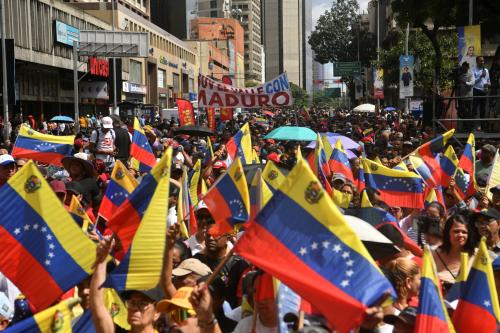
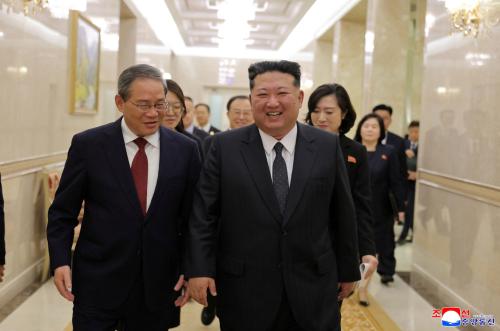
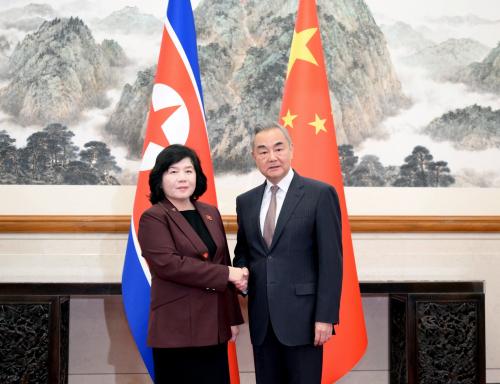
Commentary
When talking about North Korea, don’t mention Libya
May 29, 2018